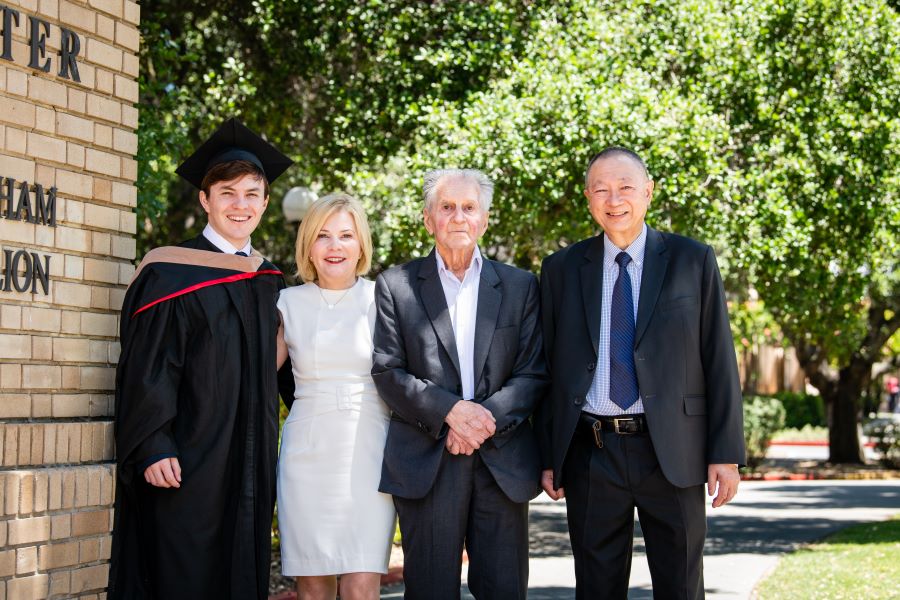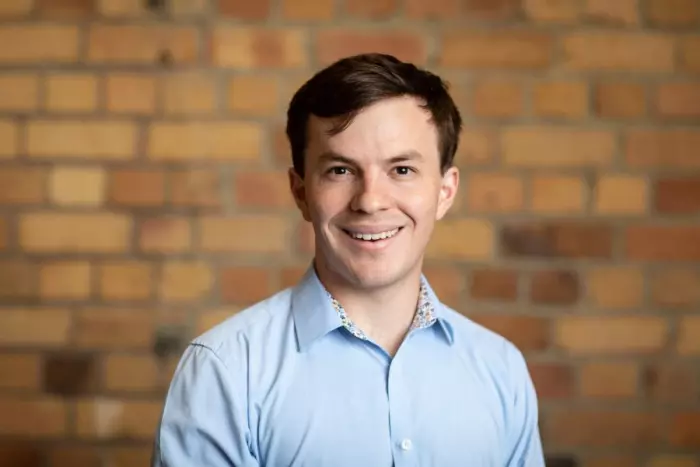Welcome to My Net Worth, our regular column on the lives and motivations of our country’s top business, legal and political people in their own words.
In his final year at King’s College in Auckland (where he was dux), Jamie Beaton applied to 25 of the world’s top universities and gained admission to them all. He chose Harvard, and began there midway through 2013, the same year he co-founded Crimson Education. At age 20, with a master’s degree in applied mathematics, he became the youngest-ever applicant to gain admission to the MBA programme at the Stanford Graduate School of Business. In November 2017, he was awarded a Rhodes Scholarship to do post-graduate study at Oxford. Crimson Education – which in 2016 attracted a US$30 million capital investment from New York-based Tiger Global Management – now operates in 20 countries, working with students to increase their chances of gaining entry to top-rated tertiary institutions primarily in the US and UK.
My happiest childhood memory is going to the Gold Coast with my gran, grandad and mum when I was five or six. I love theme parks and roller coasters and all that stuff.
My family really put everything into me and I was fortunate to have support in every phase of my education. Emotionally, I put myself through pretty high intensity for a number of years to get into different institutions. Fulfilling some of the potential they saw in me is something that I'm really grateful for.
I had confidence academically at an early age – I took school pretty seriously. How my classmates might treat sports on the rugby field, I treated academics that way. My report cards always used to say that I talked too much but my grades were solid.
I had a light-bulb moment when I was 14. I was on the train and sat next to this guy called Ben, who was the school dux. He had just gotten into Yale and he told me that I should consider applying overseas, that I shouldn't just think about local universities. And that really got me fired up.
 Jamie Beaton with mum Paula, grandfather John and step-father Glenn Kwok at his 2019 Stanford University graduation.
Jamie Beaton with mum Paula, grandfather John and step-father Glenn Kwok at his 2019 Stanford University graduation.
I think my biggest failure would be that for many years, I didn't recognise the importance of leadership. I would run my own race in academics. I didn't really appreciate that in order to create real change in the world you need to unify a group of people behind a common mission and help them to feel purpose in that mission.
In the early years of Crimson, we had a close group of people around us and it was really easy, but as we scaled from 50 to 150 employees, I made a lot of mistakes when I didn't appreciate things like company values, or having a common mission, so I had to quickly level up.
My best business advice is to focus on a niche and then choose a niche of that niche and get started there.
I've developed some strong systems to manage time pressure and make sure that I'm in a balanced state of mind. That involves having a strong family around me.
I like to be on when I'm on, and really off when I'm off. I’ve never drunk in my life, I've never done any drugs, I have a pretty hard-line attitude in certain areas. It’s important if you are pushing yourself hard that you make sure you have really clear balance, and a consistent routine.
Switching off is important. For me, that's a James Bond movie, or it’s a roller coaster. My friends tease me about how much I love theme parks. But things like that epitomise escapism – you can't help but have everything on your mind whooshed away.
On the weekend, I have a lot of student calls. I usually bunch them up in my mornings and that gives me a lot of energy. Then I’ll do a walk or a run. My partner and I have a little puppy called Alfie – he’s a chihuahua-papillon cross – so we’ll take him for a walk and maybe get in a movie.
I am really bad at cooking. My application essay for Harvard was actually about my first part-time job, working at a chicken restaurant in Mission Bay. I wrote about my disastrous attempts to make burgers and chicken tenders. I really messed it up.
I like to spend money on Warhammer. It’s a tabletop strategy game where you assume all these different armies. When there's a tournament coming up and there's a new kind of competitive army that's come out, I go and get that. It’s what I would spend money on when I was 16, so my spending hasn’t changed that much.
As told to Jacqui Loates-Haver.
This interview has been edited for clarity.











